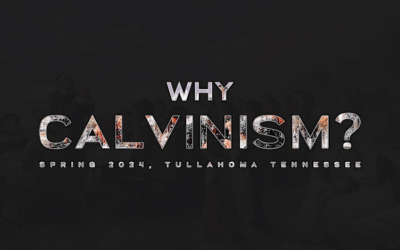Pre-existence of man
Judaism teaches that God created all the souls of man on the same day with the angels. ‘In the seventh heaven,Araboth, are stored the spirits and souls which have still to be created’ (Chag. 12b), i.e. the unborn souls which have yet to be united to bodies.
Note: The soul is the spiritual force within man which raises him above an animal existence, inspires him with ideas and prompts him to choose the good and reject the evil. Since the spirit of man was created prior to the fall it is good and not sinful.
Evil Impulse
Judaism makes God the author of sin. “The Holy One, blessed be He, said to Israel, My children, I have created the evil impulse, and I have created the Torah as an antidote to it; if you occupy yourselves with Torah you will not be delivered into its power” (Kid. 30b).
When God created man, he was created good but with an evil impulse. “The Holy One, blessed be He, created two impulses, one good and the other evil” (Ber.61a).
At the root of the discussion was the opinion that man is essentially a sinful creature who is bound during his lifetime to do many deeds which earn for him the condemnation of God. Part of human nature is the evil impulse, which can bemastered, but all too often takes control and demoralizes.
Note: The belief that in every human being there are two urges – one to evil and the other to goodness – figures prominently in Rabbinic ethics. Having to find a basis for the doctrine in the text of the Bible, the Rabbis deduced it in this way: ‘What means that which is written, “Then the Lord God formed man” (Gen. 2:7), the wajjitzer (and He formed) being spelt with two letters j? The Holy One, blessed be He, created two impulses, one good and the other evil’ (Ber.61a). The Hebrew word for ‘impulse’ is Jetzer; hence the two j’s were then to indicate two – the Jetzer Tob, ‘good impulse’ and Jetzer Hara, ‘evil impulse’.
The evil impulse is thirteen years older than the good impulse. It exists from the time of a person’s emergence from his mother’s womb; it grows with him and accompanies him through life. It begins to desecrate the Sabbath, to kill and act immorally, but there is nothing (within him) to prevent it. After thirteen years the good impulse is born. When he desecrates the Sabbath it warns him, “Good-for-nothing! Behold it is said, ‘Every one that profaneth it shall surely be put to death’ (Exodus 31:14). What is significant about the age of thirteen? It is the year that a boy would be recognized as a man after his Bar-Mitzvah.
The Talmud in an attempt to prevent the teaching of perfectionism allows sin as long as it is done in private (emphasising the outward appearance not the inward heart).
If a man sees that his evil impulse is gaining the mastery over him, let him go to a place where he is unknown, put on black clothes and do what his heart desires; but let him not profane the Name publicly.” (Chag. 16a)
In other words sin, as long as it is in private and other people do not know about it is permissible. It does not answer the heart issue nor that God knows about it. A private sin still profanes the name of God.
Many utterances can be adduced from the Talmud to prove that man is sinless by nature. ‘A child aged one year who, has not tasted sin’ (Joma 22b). Upon the words of Ecclesiastes, ‘There is a time to be born and a time to die’ (Eccles. 3:2), was based on` the aspiration, ‘Happy the man whose hour of death is like the hour of his birth; as at his birth he is free of sin, so at his death may he be free of sin’ (p. Ber. 4d).
Free Will
Judaism has the belief that all men have a sinful impulse not a sinful nature and therefore they have a “free” will. People are born morally neutral not desiring good or evil. God does not decide if a man is righteous or wicked it is wholly the will of man. “The angel appointed over conception is named Laiah. He takes a seminal drop, sets it before the Holy One, blessed be He, and asks, ‘Sovereign of the Universe! what is to become of this drop? Is it to develop into a person strong or weak, wise or foolish, rich or poor?’ But no mention is made of its becoming wicked or righteous” (Nid. 16b). An oft-quoted maxim reads: “All is in the hands of Heaven except the fear of Heaven” (Ber. 33b), which means that although God decides the fate of the individual, a reservation is made with respect to the moral character of his life. It is the moral character that they base righteous and wickedness on and not the relationship with God, because all Jews believe that they are born into a relationship with God.
The conviction that man’s will is unfettered is seen to be the foundation of Rabbinic ethics. The nature of his life is molded by his desires. He can misuse life’s opportunities if he so wishes, but in no circumstance would it be agreed that he must misuse them. The evil impulse constantly tempts him; but if he falls, the responsibility is his and his alone.




0 Comments